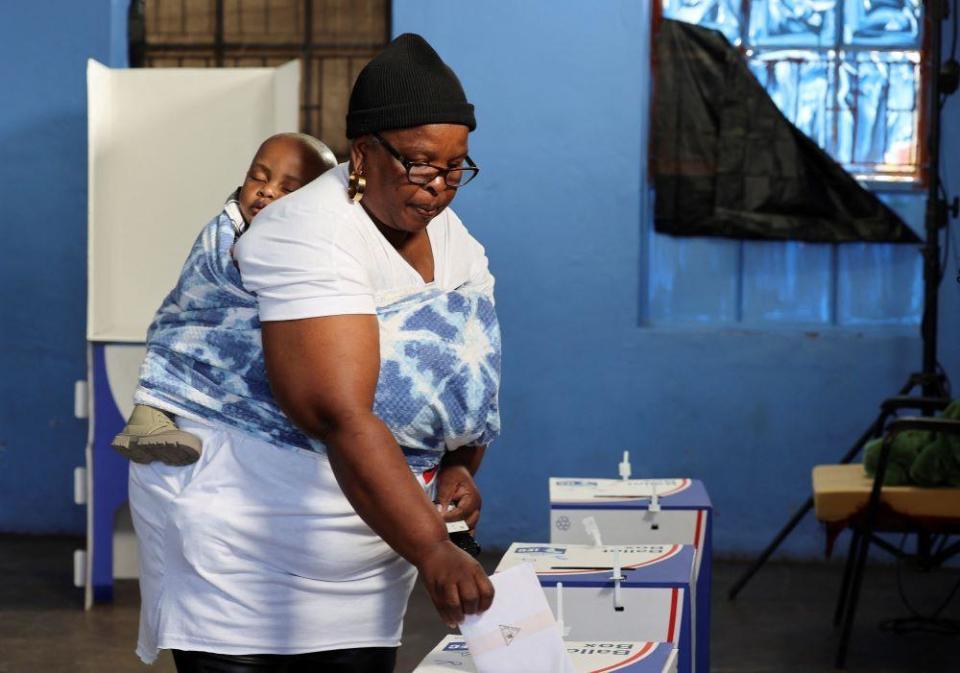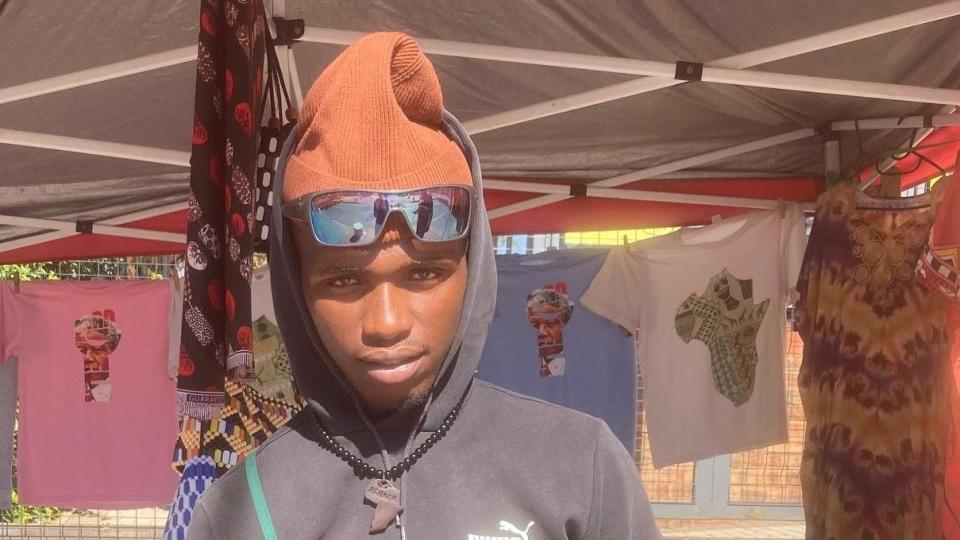South Africans are vote casting in probably the most pivotal election because the racist gadget of apartheid led to 1994, which might see the African Nationwide Congress (ANC) lose its majority for the primary while in 30 years.
As he solid his vote in Soweto, President Cyril Ramaphosa mentioned he had “no doubt” that community would another time display self assurance within the ANC.
John Steenhuisen, chief of the opposition Democratic Alliance (DA), described the ballot as the primary alternative for alternate in 30 years.
Vote casting has been easy total, however some community had been became away because of a rule alternate which calls for them to vote the place they registered.
Aid for the ANC has waned through the years as a result of rage over prime ranges of corruption, crime and unemployment.
Greater than 27 million community are registered to solid their ballots in a ballot that highlights rising political fragmentation within the nation.
A document 70 events and 11 independents are contesting, with South Africans vote casting for a pristine parliament, and 9 provincial legislatures.
“The huge growth in parties shows disillusionment with the old big parties or, cynics would say, people are looking for an opportunity to get into parliament and earn a pension,” political analyst Richard Calland advised the BBC.
In energy since anti-apartheid icon Nelson Mandela led it to victory on the finish of white-minority rule, the ANC is looking for a 7th time period in place of business.
Opinion polls have persistently urged that the birthday celebration will lose its parliamentary majority for the primary while, forcing it to go into right into a coalition with a number of opposition birthday celebration.
“We are entering the next phase of our democracy, and it is going to be a big transition,” Prof Calland advised the BBC.
“We will either become a more competitive and mature democracy, or our politics will become more fractured,” he added.
There’s no direct election for the president – the pristine Nationwide Meeting chooses the president, who’s most often the chief of the bulk birthday celebration.
The marketing campaign has been ruled via usual corruption in executive, crushingly prime ranges of unemployment, particularly some of the adolescence, deteriorating folk products and services and rampant crime.
The DA has signed a pact with 10 alternative events, agreeing to mode a coalition executive in the event that they get enough quantity votes to dislodge the ANC from energy.
However that is extremely not likely, with the ANC anticipated to stay the most important birthday celebration, placing it in pole place to govern a coalition.
It were given 57.5% of the vote within the utmost election in comparison to the DA’s 21%.

Former President Jacob Zuma brought about a significant injury when he introduced in December that he used to be leaving behind the ANC to marketing campaign for a pristine birthday celebration, uMkhonto weSizwe (MK), which interprets as Spear of the Society.
Even if he has been barred from working for parliament as a result of a conviction for contempt of court docket, his title nonetheless seems at the poll paper as MK chief.
As he solid his poll in his village of Nkandla, he seemed upbeat, pronouncing: “All is in order, I can see my face on ballot papers.”
Opinion polls counsel MK gets about 10% of the vote. It’s anticipated to do particularly neatly in his house province of KwaZulu-Natal, the place tensions had been prime, with some incidents of violence reported all through the marketing campaign.
“The election in KwaZulu-Natal could become very messy – expect a lot of disputes and contestation over the results,” Prof Calland mentioned.
Police and the military had been deployed to polling stations around the nation to assure that vote casting takes playground peacefully, and that poll papers don’t seem to be stolen.
Ladies manufacture up 55% of registered citizens – round 15 million, consistent with statistics spared via the electoral fee.
In relation to era workforce, voter registration is best possible amongst those that are 30 to 39 years ancient. They manufacture up nearly seven million of the 26.7 million citizens.
However, mentioned, Prof Calland, round 13.7 million eligible citizens didn’t sign up, with maximum of them – 8 million – under the era of 30.
“They have turned their backs on our young democracy. The assumption is that they have lost hope, feeling economically excluded and seeing no viable opposition,” he added.
This view used to be borne out via 29-year-old Keabetswe Maleka, who lives in Soweto, which used to be the epicentre of a scholar rebellion in opposition to apartheid in 1976.


He advised BBC Africa Day-to-day podcast presenter Mpho Lakaje, he would no longer be vote casting as a result of wicked folk products and services, and since he’s unemployed.
“I’m looking for a job. Nothing is happening,” he mentioned.
Alternatively, turnout is predicted to be upper amongst used South Africans.
In Cape The city, Mansoer Safodien, 73, who used to be vote casting along side his spouse, Wardia, advised the BBC:
“It’s important for us to use our vote because people sacrificed so much for us to be able to vote, which we couldn’t do under apartheid.”
Additional reporting by Nomsa Maseko in Nkandla and Mohammed Allie in Cape Town.




Travel to BBCAfrica.com for extra information from the African continent.
Observe us on Twitter @BBCAfrica, on Fb at BBC Africa or on Instagram at bbcafrica











